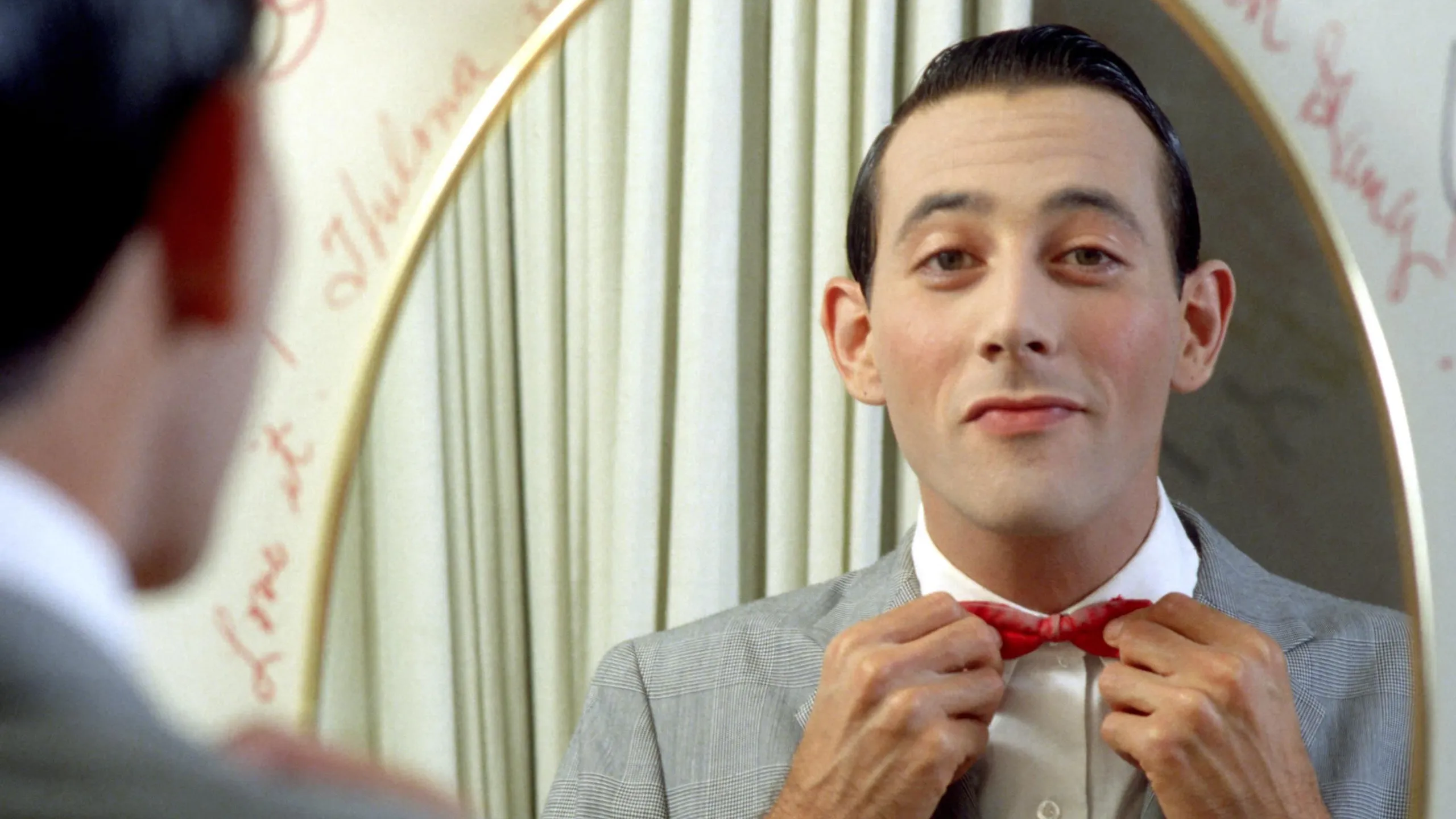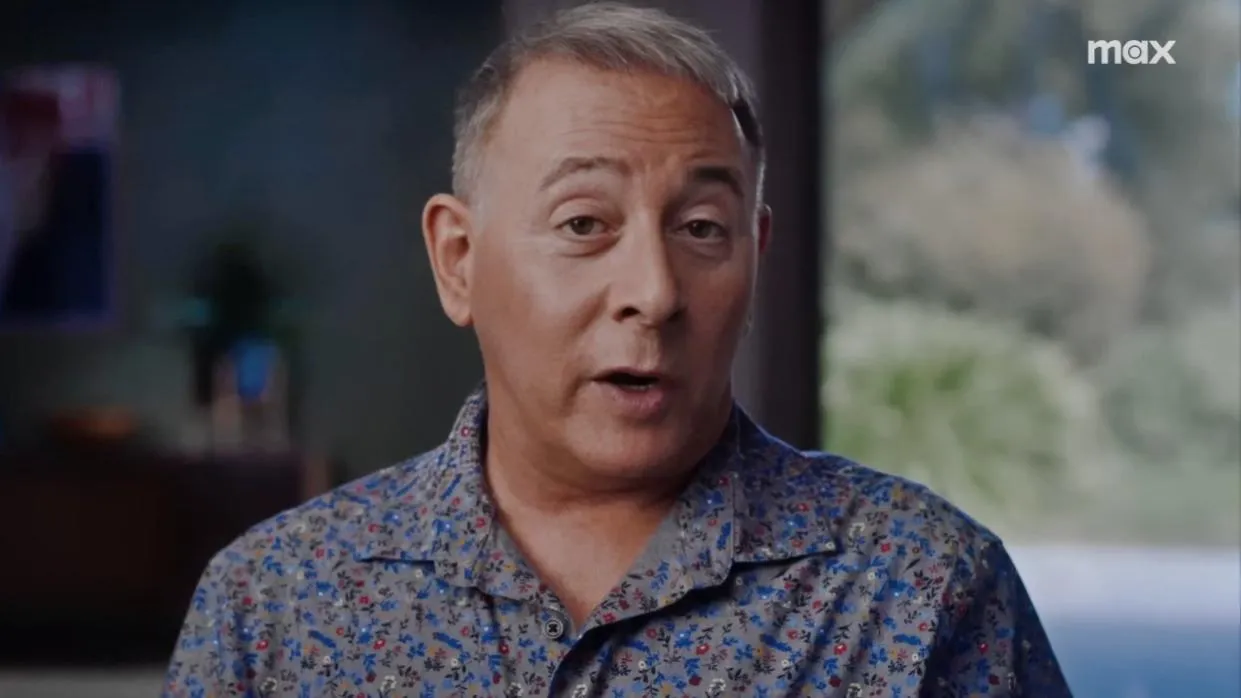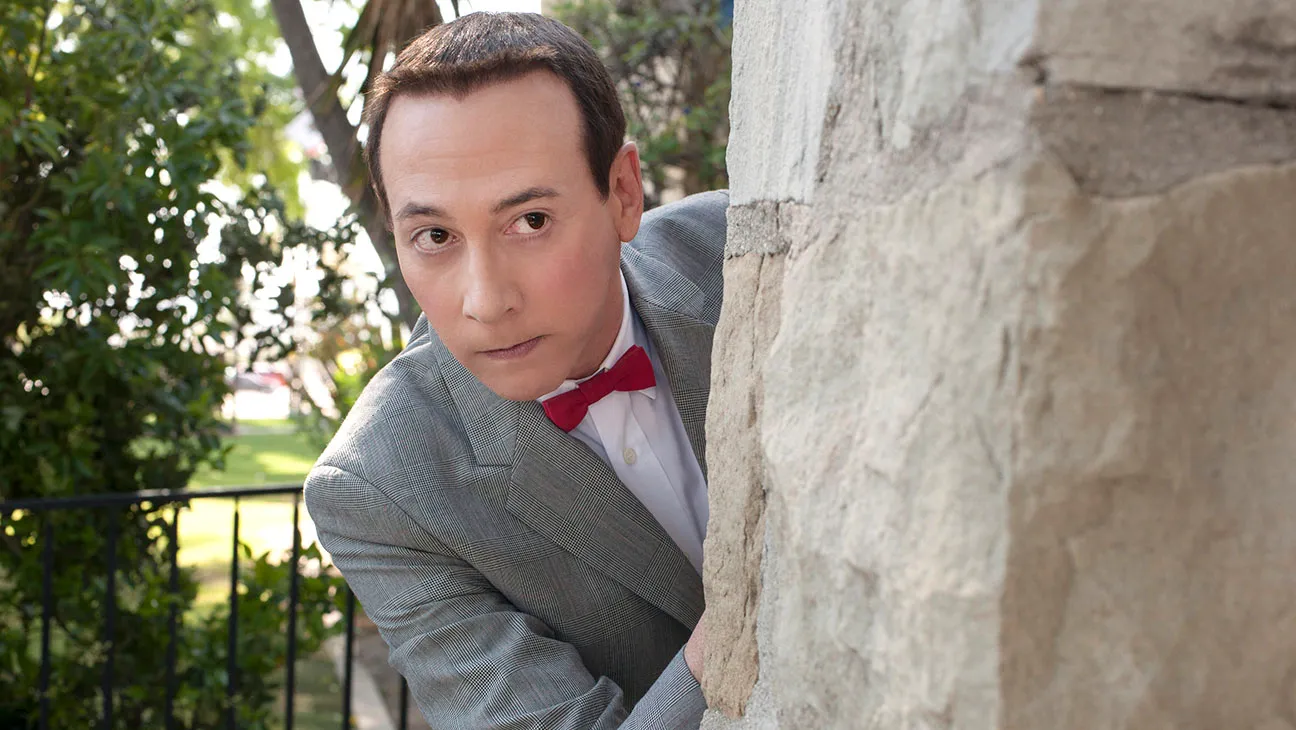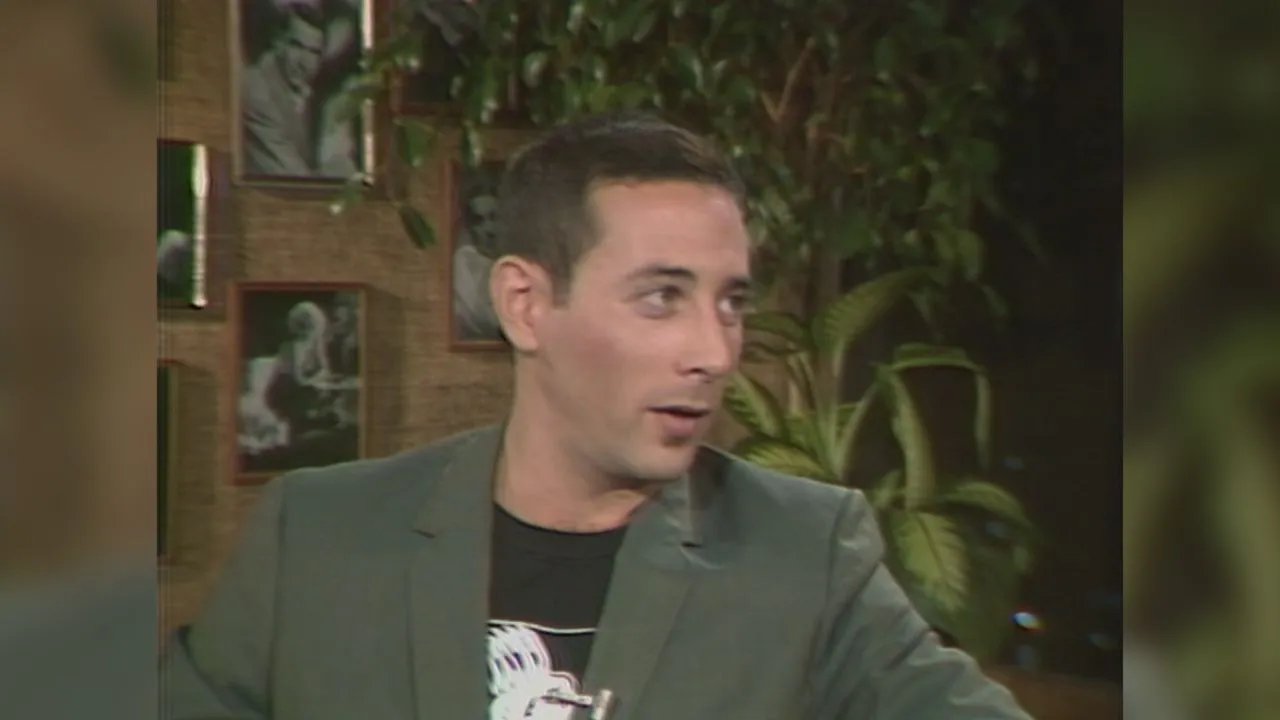The documentary “Pee-wee as Himself” offers a complex view of Paul Reubens’ life through a performance-driven lens. This two-part film examines the blurred lines between Reubens’ personal identity and his iconic character, Pee-wee Herman. The narrative weaves through experiences of creativity, struggle, and public perception.
Reubens’ early life emerges as a foundation for artistic expression. Pee-wee Herman surfaces as more than a comedic character—he represents a protective mechanism against external pressures.
The character embodies a deep exploration of self-presentation, revealing the intricate ways individuals construct identity through performance. Beneath the laughter lies a profound examination of personal vulnerability and the masks people wear to navigate social landscapes.
Shadows of Innocence: The Formative Years of Paul Reubens
Paul Reubens emerged from a complex childhood landscape in Peekskill, New York. His father’s narrative wove through stories of adventure and possibility, creating an environment where imagination could flourish. The early years painted a world of circus stories and artistic aspirations, balanced against a home life filled with subtle tensions and unspoken expectations.
CalArts became a transformative space for Reubens. Surrounded by creative peers and mentored by experimental performers, he discovered art as a fluid medium of expression. The institution offered him pathways to explore identity and artistic vision, challenging traditional boundaries of performance and self-understanding.
Pee-wee Herman crystallized from these experimental roots—a character born in Los Angeles’ alternative performance scenes. This persona represented a nuanced exploration of human experience, blending childlike wonder with profound emotional complexity. Through Pee-wee, Reubens crafted a character that spoke to deeper psychological landscapes, using comedy as a lens to examine adult vulnerabilities and societal expectations.
The character became a vehicle for investigating human connection, simultaneously inviting laughter and introspection. Reubens crafted a performance that transcended simple comedic archetypes, creating a multilayered representation of inner emotional terrain.
The Whimsical Mirage: Pee-wee’s Cultural Odyssey
In the colorful landscape of 1980s pop culture, “Pee-wee’s Big Adventure” and “Pee-wee’s Playhouse” captured attention with their distinctive style. “Big Adventure” tells the story of Pee-wee Herman’s quest for his beloved bicycle, a journey directed by Tim Burton that blends humor with deeper emotional undertones. The film explores the search for a cherished object, revealing layers of personal meaning beyond a simple lost possession.
“Pee-wee’s Playhouse” emerged as a wildly creative television show that transformed children’s programming. With its explosion of colors and eccentric characters, the series broke traditional boundaries of entertainment. Pee-wee, dressed in his signature suit and speaking with his unique voice, created a world that spoke to both children and grown-ups.
Pee-wee’s character resonated on multiple levels. For younger viewers, he represented unbridled imagination. For older audiences, he exposed the complex layers of human experience through comedic performance. The show mixed playful energy with subtle social commentary, creating a space where humor could explore deeper emotional territories.
The character challenged traditional entertainment expectations, presenting a world that celebrated difference and creativity. Pee-wee Herman became more than a simple comedic figure – he was a cultural statement that questioned societal norms and celebrated individual expression.
The Struggle for Authenticity: The Dance of Reubens and Wolf
Paul Reubens’ story emerges through documentarian Matt Wolf’s intimate lens, revealing a complex interplay of tension and raw emotion. Their forty-hour interview dialogue vibrates with electric energy—a dynamic interaction that transcends typical documentary boundaries. Reubens shifts between vulnerable transparency and protective performance, creating a nuanced portrait of an artist wrestling with his own constructed identity.
Wolf crafts a narrative that probes deeper than surface-level examination. Reubens maneuvers through conversations, alternating between revealing personal truths and retreating behind carefully constructed personas. The interview becomes a psychological dance, where control and vulnerability intertwine.
Philosophical questions emerge about identity and human connection. The documentary explores the tension between public perception and internal reality. Reubens’ character work becomes a mechanism for understanding personal struggles, with each moment revealing layers of emotional complexity.
Wolf’s visual approach amplifies the narrative’s depth. Archival footage, visual collages, and intimate moments create a rich tapestry that reflects Reubens’ artistic sensibility. The storytelling weaves between emotional states, capturing the intricate landscape of personal experience.
The exploration delves into Reubens’ inner world, presenting a raw examination of performance, protection, and genuine self-expression. Wolf’s approach invites viewers to contemplate the masks we create and the truths we conceal.
Through this intimate portrait, audiences glimpse the intricate mechanisms of self-preservation and artistic creation. The documentary becomes a profound meditation on the human experience—a delicate examination of how we construct and protect our most vulnerable selves.
The Fractured Mirror: Scandals and Resilience in Reubens’ Odyssey
Paul Reubens’ career tells a story of artistic brilliance interrupted by unexpected turmoil. In 1991, an arrest for indecent exposure in a Florida theater marked a pivotal moment that disrupted his professional trajectory. The event triggered intense media scrutiny, transforming Reubens from celebrated performer to controversial figure overnight.
Media coverage quickly eroded his established reputation. The incident created a stark divide between his previous comedic persona and the new public perception. Audiences who once celebrated his work now viewed him through a lens of skepticism and judgment. His character Pee-wee, once synonymous with playful entertainment, suddenly seemed disconnected from this new narrative.
Despite the challenges, Reubens demonstrated remarkable adaptability. He slowly rebuilt his presence in entertainment through strategic appearances. Television cameos and the 2016 Netflix film “Pee-wee’s Big Holiday” signaled his gradual return to public consciousness. His approach balanced acknowledgment of past difficulties with a commitment to continued artistic expression.
Reubens’ path revealed a nuanced approach to personal and professional rehabilitation. Each subsequent performance carried undertones of his experiences, creating a more textured artistic identity. He transformed potential career destruction into an opportunity for reinvention, showing resilience beyond typical redemption stories.
His journey illustrated the complex relationship between public figures and audience expectations. Reubens did not simply attempt to reclaim his previous status but instead crafted a new professional narrative that incorporated his past experiences.
Beneath the Masquerade: Reubens’ Inner Turmoil and Facade
Pee-wee Herman’s childlike spirit conceals a complex emotional world, where identity and performance intertwine through an enchanting and haunting dance. Paul Reubens’ path transcends mere character creation, revealing a deep struggle to align his inner self with external expectations. His growth from whimsical performer to recognized figure unveiled a profound introspection—a stark glimpse into artistic expression’s core tensions. Each audience laugh carried hidden weight, suggesting that widespread adoration often demands personal sacrifice.
Reubens’ sexuality emerged as a landscape marked by societal pressures and concealed pain. He carefully navigated secrecy, with his vibrant exterior masking underlying fears of exposure. Homophobic threats loomed large, potentially jeopardizing both career and personal sense of self. Secret relationships underscored fame’s emotional toll, exposing how public perception can crush authentic human connection. The silence surrounding his sexual identity echoed a profound question: How does one maintain truth while protecting oneself?
Reubens traversed personal and public landscapes, carrying emotional complexity through his career. The gleeful, naive Pee-wee character stood in sharp contrast to the contemplative artist wrestling with inner solitude. This tension created a rich narrative exploring performance, reality, and the human search for acceptance within a judgmental world.
“Pee-wee as Himself” reveals moments of raw vulnerability, where laughter and sorrow clash in a raw human experience. The work challenges viewers to examine personal contradictions—questioning whether we exist beyond our projected personas. Through his story, Reubens invites reflection on the intricate dance between external expectations and internal truths.
A Tapestry of Dualities: The Complex Portrait of Paul Reubens
“Pee-wee as Himself” explores Paul Reubens’ life through a nuanced lens. The documentary reveals the complexity of an artist navigating performance and personal truth. Reubens emerges beyond a simple character, presenting a raw examination of human vulnerability. His story weaves through moments of humor and pain, revealing the intricate layers of personal struggle.
The narrative uncovers Reubens’ experience with unexpected depth, challenging viewers to consider the complex interplay between public persona and inner self. Each scene peels back another layer, exposing the tension between external expectations and internal reality. His journey reflects a profound exploration of identity, revealing how individuals grapple with societal pressures and personal authenticity.
The Review
Pee-wee as Himself
"Pee-wee as Himself" examines Paul Reubens' life through an intricate lens. The documentary presents an intimate portrait of the performer, exploring the nuanced layers behind the Pee-wee Herman character. With carefully curated archival footage and personal narratives, the film reveals Reubens' emotional journey, delving into questions of personal identity and artistic expression. Viewers witness a vulnerable exploration of a performer who crafted a singular comedic persona while navigating complex personal challenges.
PROS
- Provides a deep, personal look at Paul Reubens, revealing the man behind the iconic character.
- Explores complex themes of identity, vulnerability, and resilience, resonating with a wide audience.
- Features a wealth of archival footage, enhancing the storytelling and providing historical context.
- Successfully blends humor and poignancy, maintaining the spirit of Pee-wee while addressing darker themes.
CONS
- The two-part documentary may feel long for some viewers, requiring patience to fully engage with the content.
- Some themes may remain unresolved or complex, potentially leaving viewers with lingering questions.



















































